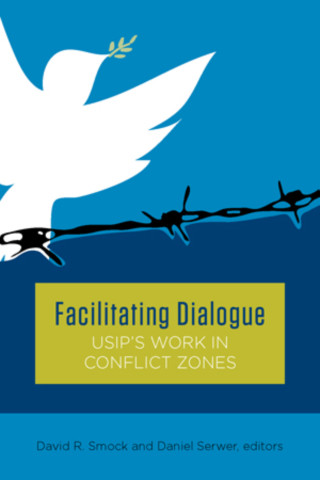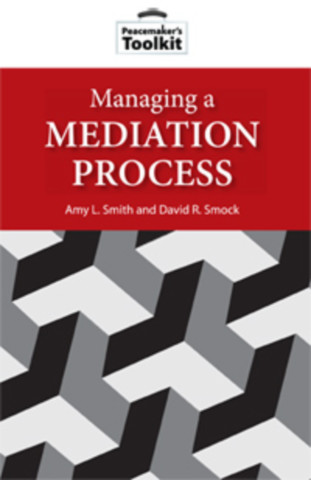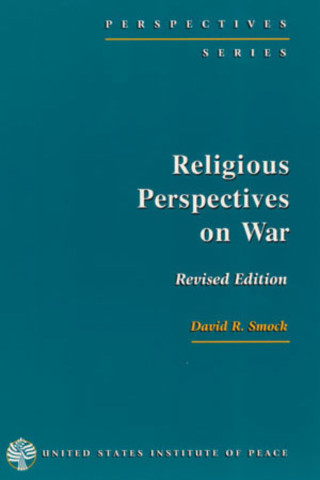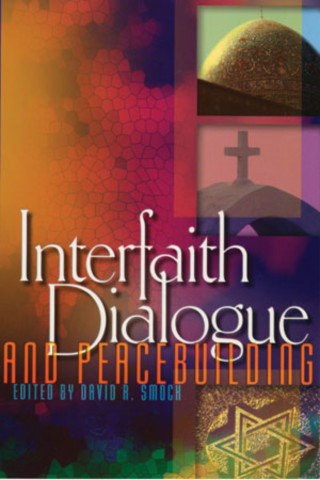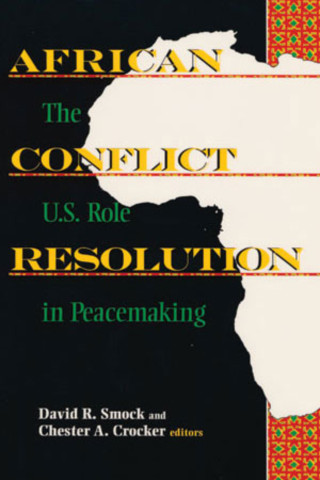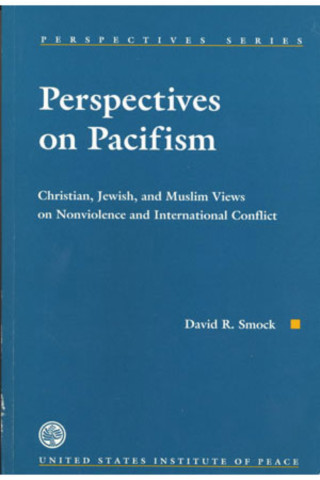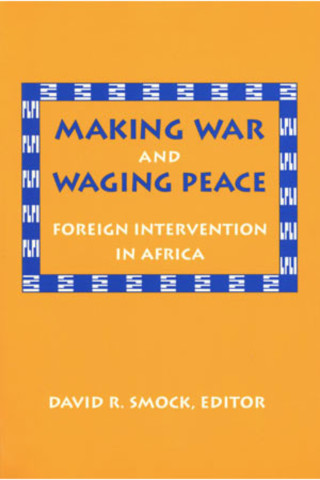David R. Smock
David R. Smock, now retired, was the vice president of the Institute's Center for Mediation and Conflict Resolution and associate vice president of the Religion and Peacemaking program, one of the Centers of Innovation. Previously he served as director of the USIP's Grant program and coordinator of Africa activities. He has worked on African issues for over thirty years and lived in Africa for eleven years. As a staff member of the Ford Foundation from 1964 to 1980, he served in Ghana, Kenya, Lebanon, Nigeria, and New York. From 1980 to 1986, Smock served concurrently as director of the South African Education Program, a scholarship program that brings black South African students to U.S. universities, and vice president for program development and research for the Institute of International Education. After serving as executive associate to the president of the United Church of Christ from 1986 to 1989, Smock became executive director of International Voluntary Services, supervising development projects in Africa, Asia, and Latin America. He is editor of Interfaith Dialogue and Peacebuilding, Making War and Waging Peace: Foreign Intervention in Africa, and co-editor of African Conflict Resolution: The U.S. Role in Peacemaking. He received a Ph.D. in anthropology from Cornell University and holds an M.Div. from New York Theological Seminary.
Author's Books
This volume presents seven case studies of the United States Institute of Peace’s facilitated dialogue efforts in Iraq, Kosovo, Israel/Palestine, Colombia, Nigeria, and Nepal. Covering a variety of conflict situations and peacemaking efforts—from the tribal reconciliation in Mahmoudiya, Iraq, to a justice and security dialogue in Nepal—the cases tell stories of peacebuilding successes, efforts in progress, limitations on what can be achieved, and lessons learned.
Managing the Mediation Process offers an overview of the process of mediating interstate and intrastate conflicts. Each of its six chapters covers a different step in the process, identifying what needs to be done at that step and how best to accomplish it.
If, when, why, and how to fight a war? In the case of the Gulf War, that debate encompassed three faiths–Christianity, Islam, and Judaism–and the debate has acquired new dimensions in the aftermath of the September 11 attacks and the war on terrorism.
In this volume, Jews, Muslims, and Christians with very diverse views address such issues as the just war doctrine, explaining their differences and finding often surprising common ground. This new edition reprints the full text of the first edition. A new preface describes the differences and similarities between the Gulf War and the war against al Qaeda/Taliban. Also included is an introduction explaining the just war doctrine, a glossary of terms, and an expanded and updated "Suggestions for Further Reading."
As the Christian, Muslim, and Jewish contributors to this volume have discovered firsthand, religion is better at fostering peace than at fueling war. Rarely, conclude the authors, is religion the principal cause of international conflict, even though some adversaries may argue differently. But religion can often be invaluable in promoting understanding and reconciliation-and the need to exploit that potential has never been greater.
Drawing on their extensive experience in organizing interaction and cooperation across religious boundaries in the Middle East, Africa, Southeast Asia, Northern Ireland, and the Balkans, the contributors explore the formidable potential of interfaith dialogue. The first part of the volume analyzes the concept and its varied application; the second focuses on its practice in specific zones of conflict; and the third assesses the experiences and approaches of particular organizations.
When organized creatively, interfaith dialogue can nurture deep engagement at all levels of the religious hierarchy, including the community level. It draws strength from the peacemaking traditions shared by many faiths and from the power of religious ritual and symbolism. Yet, as the authors also make plain, it also has its limitations and carries great risks.
When Somali gunmen killed 18 American Rangers in Mogadishu on October 3, 1993, public and congressional support for the American and UN missions in Somalia dropped dramatically. In fact, U.S. policymakers began to rethink commitments to peacemaking in Africa in general.
Nevertheless, many African and U.S. specialists on African affairs--including the contributors to this volume--strongly urge the United States to continue active engagement with Africa and creatively support African initiatives to manage and resolve their own conflicts.
This book brings together nine specialists from Africa and the United States--including former diplomats, academics, policymakers, and policy analysts--to assess ways to enhance the U.S. contribution to African efforts to prevent, manage, and resolve violent conflicts.
The contributors conclude that U.S. initiatives can take a variety of forms and need not involve American troops. There is a new African willingness to assume responsibility, but African instutional and fanancial capabilities are severely limited. African initiatives therefore have little chance of success without significant and sustained international, and particularly American involvement.
In this Perspectives Series volume, the United States Institute of Peace brings together Christian, Jewish, and Muslim theologians and activists to debate the role of nonviolence in peacemaking and conflict resolution, yielding rare insight into the complexities of modern religious thought on justice and peace.
During the past decade or so, Africa has been beset by an extraordinarily high number of wars. Indeed, some two to three million people died because of Africa’s warefare in the 1980’s alone.
That heavy burden of war, most of it originating internally, has been accompanied by frequent external involvement, both in terms of military intervention and through efforts to promote conflict resolution, usually by mediation.
This volume focuses on the role and effectiveness of external intervention in sub-Saharan Africa, primarily during the 1980’s. The authors include a range of Western and African scholars and policymakers with extensive experience in Africa.
The richly detailed case studies examine Angola and Namibia, Ethiopia and Eritrea, Mozambique, and Sudan. Additional essays assess the role of the OAU and summarize French, British, and Belgium military involvement. An afterword by former diplomat Chester Crocker offers several guidelines for promoting peace-making and peacekeeping on the African continent in the future.

